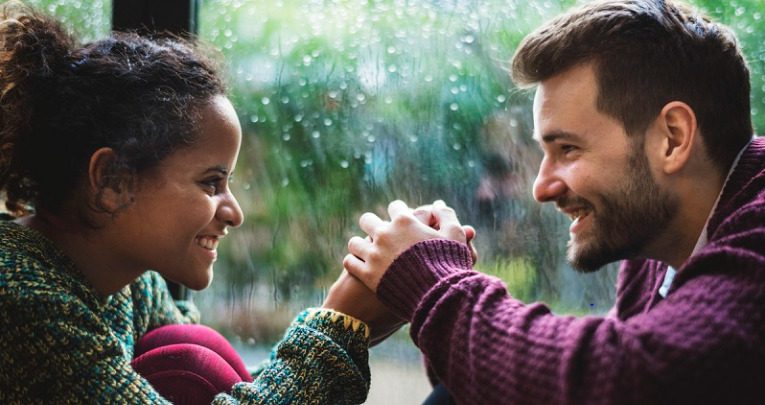What happened when you get a girlfriend is a perfect topic to read.
Having a girlfriend can bring a sense of companionship, intimacy, and emotional support. It can also provide opportunities for growth, learning, and self-discovery.
Here are some possible things that can happen when you get a girlfriend:
1) Increased emotional support.
When you get a girlfriend can provide a sense of emotional support, and a person can feel more secure and confident in their life.
Increased emotional support can be particularly important for individuals who are experiencing stress, anxiety, depression, or other mental health challenges.

It can also be beneficial for individuals who are facing major life changes, such as the loss of a loved one, a divorce, or a job loss.
There are many ways to provide increased emotional support, such as:
Listening actively. This involves giving the person your full attention and listening to what they are saying without interrupting or judging them.
Empathizing. Try to put yourself in the other person’s shoes and understand their feelings and perspective.
Offering encouragement. This can involve providing words of affirmation and support to help boost the other person’s confidence and self-esteem.
Providing practical help. This can involve offering to help with daily tasks, such as cooking, cleaning, or running errands.
Being there. Simply being present for the other person, whether in person or through a phone call or video chat, can be incredibly meaningful and comforting.
Learning and growth opportunities.

Being in a relationship can provide opportunities for learning and growth, such as developing communication skills and learning to compromise.
Learning and growth opportunities refer to opportunities for individuals to develop new skills, acquire knowledge, and enhance their personal and professional capabilities. These opportunities can take many forms, such as training programs, workshops, mentorship, networking events, online courses, and educational programs.
These are important for several reasons. Firstly, they help individuals to stay relevant and competitive in a rapidly changing job market. As technology and industry practices evolve, individuals need to continuously update their skills and knowledge to remain employable and valuable to their employers.
Secondly, learning and growth opportunities can help individuals to achieve their personal and professional goals. By acquiring new skills and knowledge, individuals can enhance their performance in their current job or pursue new career paths.
Thirdly, learning and growth opportunities can have a positive impact on mental health and well-being. By engaging in activities that promote personal and professional development, individuals can experience a sense of purpose, achievement, and fulfillment.
Examples of learning and growth opportunities include:
Professional development workshops. These can be designed to provide individuals with new skills, knowledge, and techniques relevant to their industry or job function.
Mentorship programs. These can provide individuals with guidance, support, and feedback from experienced professionals in their field.
Online courses and educational programs. These can provide individuals with access to a wide range of educational resources and enable them to learn at their own pace and on their own schedule.
Networking events. These can provide individuals with opportunities to connect with peers, colleagues, and industry leaders and expand their professional network.
Cross-functional projects. These can provide individuals with opportunities to work on projects outside of their usual job function, which can help to develop new skills and broaden their knowledge and experience.
Time and effort commitment.

Maintaining a relationship requires time and effort, and a person may need to make adjustments to their daily routine or schedule.
Time and effort commitment refers to the amount of time and energy that an individual is willing to devote to a particular task or activity. This can include anything from completing a project at work to pursuing a hobby or engaging in personal development activities.
Changes in social life.

A person’s social life may change when they are in a relationship, as they may spend more time with their girlfriend and less time with friends.
Changes in social life refer to any shifts or adjustments in an individual’s social interactions, relationships, and overall social environment.
These changes can occur for a variety of reasons, such as a change in personal circumstances (e.g., moving to a new city, starting a new job, or ending a relationship), changes in family dynamics, or changes in social norms and expectations.
Changes in social life can have both positive and negative impacts on an individual’s mental and emotional well-being.
Some examples of these impacts include:
Reduced social support. If an individual experiences a significant change in their social life, such as losing touch with close friends or family members, they may feel a sense of isolation and loneliness.
Increased stress. Changes in social life can sometimes be stressful, particularly if they involve significant life events such as a divorce or the death of a loved one.
New opportunities for growth. Changes in social life can also create opportunities for personal growth and development. For example, moving to a new city can provide new opportunities for career advancement, cultural experiences, and personal growth.
Formation of new relationships. Changes in social life can also lead to the formation of new relationships and friendships. For example, joining a new social group or hobby can provide opportunities to meet like-minded individuals and form new connections.
Getting a girlfriend can be a positive and fulfilling experience, but it’s important to approach it with a realistic and healthy mindset.
It is essential to communicate openly and honestly, be respectful and supportive, and prioritize mutual growth and development.


